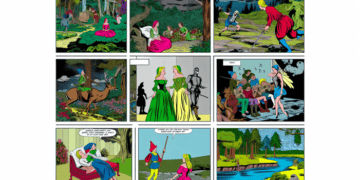In today’s fast-changing business world, holding onto great employees is more essential than ever. How can you keep your team happy, connected, and loyal? One surprisingly effective answer is trivia. Far from being just a breaktime game, well-planned trivia events can help create a more engaged and satisfied team, making workers more likely to stick around.
Why Keeping Employees Matters
No leader wants to see good employees leave. High turnover is more than inconvenient-it creates real problems. When workers leave, it affects everything from group morale to company profits.
How Employee Turnover Hurts Your Business
Losing employees isn’t just an HR issue-it costs time, money, and effort. Even if you hire a replacement quickly, you still have to get them settled in and teach them your processes. That pulls resources from other urgent tasks. Turnover also causes co-workers to pick up extra work, which can lower team performance and morale. If this happens often, it slows down progress and makes it harder to reach company goals.
The Hidden Costs of Disengagement
There are visible and invisible costs to losing employees. The obvious costs include hiring, training, and onboarding. Less obvious is the loss of experienced workers and team knowledge, which can hurt efficiency. Constantly training new hires is also exhausting and takes time away from other important work. Disengaged employees aren’t just less productive-they can also negatively affect the people around them, turning a good work atmosphere stale. On the other hand, people who feel valued want to stay, leading to stronger teams and better results.

What is Trivia-Based Engagement at Work?
Workplace trivia isn’t just a lunchtime distraction. It’s a planned, team-based activity that gets employees involved and connected while having fun.
What Makes Trivia a Good Team Activity?
Workplace trivia means coworkers gather in small groups to answer questions on different topics. It’s simple, accessible, and anyone can join in, no matter their job or department. It encourages people to participate, not just listen. You can even write questions specific to your company, making it extra special for your team.
Why Trivia Stands Out from Other Engagement Ideas
Many workplaces try activities like training seminars, parties, or after-work gatherings. Unlike those, trivia pushes people to think, collaborate, and feel involved. It’s active entertainment, not just passive listening. Plus, it’s affordable, needs few resources, and can be run for large or small groups, both in-person or online.

How Trivia Can Help Employees Stay Longer
It might seem odd that trivia affects employee retention, but it really works. When people enjoy where they work and feel noticed, they don’t want to leave.
Creating a Positive Workplace
Happy work environments keep people interested and motivated. Trivia adds fun to the daily routine, helping coworkers laugh together and become friends. It helps break up monotony and brings a livelier vibe, making your company a place where people want to be.
Connecting Different Departments
At many companies, teams stick to themselves and don’t talk much with other groups. Trivia teams can combine people from different areas, helping them meet, communicate, and work together. This breaks down barriers, leading to smoother teamwork across the company.
Building Relationships and Unity
Trivia brings together people who might not usually interact, helping create friendships and a sense of community. These shared experiences turn coworkers into a unified team instead of people who just happen to work in the same company.
Lowering Turnover with Engagement
Feeling valued is key for employees. Trivia offers a space for fun and recognition that feels natural, not forced. When people feel noticed and can celebrate small wins together, they are less likely to look for work elsewhere.
Raising Employee Net Promoter Score (eNPS)
eNPS measures how likely an employee is to recommend your company. Companies who run trivia events often see this score go up, because people feel happier and look forward to coming to work. Higher morale means employees are more likely to support and stay with your business.

How Trivia Breaks Down Barriers and Builds Teams
Trivia can connect even the most distant teams. By bringing people together around a shared activity, you can create a stronger, more welcoming work culture.
Teams Working Together
Trivia forces employees from different departments to collaborate. They have to solve problems and rely on each other’s strengths. This helps team members learn how to communicate and respect one another, skills that transfer back to regular work projects.
Companies can Make Everyone Feel Included
Trivia doesn’t rely on physical ability or job titles. Anyone can answer questions, and there’s always an area where someone shines. This makes every participant feel important. When employees feel included and that they belong, they are happier and more loyal.
What Makes for Successful Workplace Trivia?
Good trivia events require more than just asking questions. To make an event memorable and effective, you need to consider several key details.
- Pick the Right Format: Decide if your trivia should be live, virtual, or both, based on where your team works and what’s most convenient.
- Choose Interesting Topics: Make questions relevant to your company, industry, or even inside jokes to boost engagement.
- Have a Lively Host: A host who is friendly, funny, and energetic will make people want to participate and ensure everyone has fun.
- Flexible Setup: Offer both in-person and online options so that everyone can join, even if some work remotely.
Sample Table: Trivia Event Planning Checklist
| Step | What to Consider |
|---|---|
| Format | In-person, Virtual, or Hybrid |
| Timing | Duration (30-60 mins), Day/Time for best attendance |
| Questions | Mix of company-related, fun, and general topics |
| Host | Someone personable and experienced |
| Tech Setup | Reliable platform for virtual or hybrid games |
| Prizes | Small rewards or recognition for participation |

How to Start Using Trivia for Retention
If you want to boost your team’s morale and keep employees longer, organising trivia events doesn’t need to be complicated. Here’s how to get going:
Tips for Your First Event
- Start small-pick a time and promote the event as a fun break, not extra work.
- Keep things short (around one hour) so people stay interested.
- Offer simple prizes, but focus on team spirit.
- Collect feedback to see what worked and what could be improved next time.
Making Trivia Work for Remote and Hybrid Teams
- Use online meeting tools that support breakouts and polls.
- Pick a host who knows how to get people involved online.
- Try themed events or allow fun backgrounds for added energy.
- Make sure questions are clear for everyone, no matter where they’re working from.
Keeping Engagement High
- Hold trivia events regularly-monthly or quarterly-so employees look forward to them.
- Change up topics and formats to keep things fresh.
- Let different teams help create questions or even host events sometimes.
- Ask for suggestions and tweak as needed to match your team’s interests.
Real-Life Examples: How Companies Use Trivia to Keep Employees
Big brands are already seeing results from workplace trivia. Mattel, for instance, ran a trivia event about their own company and industry, which led to better teamwork and happier staff. Recurring events like these give people something to be excited about, leading to higher morale and stronger connections. Even companies with global offices, like MPI, use virtual trivia to help remote employees connect and work better together.
Tracking Results
- Measure changes in eNPS to see if employees are happier and more likely to recommend the company.
- Watch turnover rates-teams that participate often see fewer people leaving.
- Send out surveys about job satisfaction, team spirit, and appreciation to collect feedback.
Common Questions About Trivia and Employee Retention
Is Trivia Enough By Itself?
Trivia works best as part of a bigger plan to keep employees happy. It gets people talking and laughing, but it can’t replace fair pay, good benefits, and help with professional growth.
Who Gets the Most Out of Trivia?
Any company can benefit, whether it’s a big business or a small startup, and across all industries. Remote and hybrid teams, especially, find that trivia helps everyone feel more involved, no matter where they are.
How Often Should Trivia Happen?
The right frequency depends on your workplace. Once a month or every few months is a good place to start. Too often can cause people to lose interest, while too rarely won’t have much impact.
Should Managers Participate?
Yes! When leaders join in, it helps break down barriers and shows they value their teams. It also makes managers more approachable and boosts trust.
What if People Don’t Want to Join?
Some workers might feel shy. Emphasize that the goal is to have fun, not to win. Create mixed teams and have a friendly host to help everyone feel comfortable. Usually, participation increases as people see others enjoying themselves.
Does Trivia Hurt Productivity?
Some might worry it’s a waste of work time, but a well-run, short trivia event can actually refresh employees, reduce stress, and boost overall productivity.
Start Using Trivia to Keep Your Team Happy
Keeping employees isn’t just about higher salaries or better perks. People want to feel valued, connected, and have some fun at work. Trivia is a simple, effective way to bring teams together, build a stronger company culture, and make your workplace one where people want to stay. If you want a cost-friendly, enjoyable way to help your team be happier and more loyal, give trivia a try-you may be surprised by the results.








































